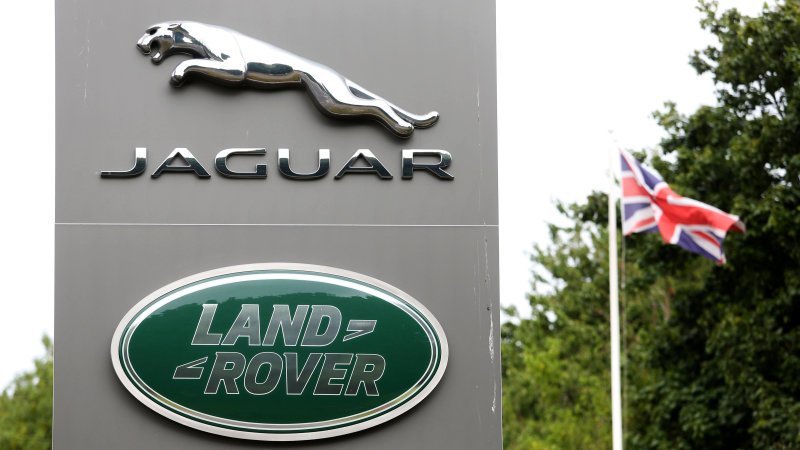Britain's biggest carmaker Jaguar Land Rover (JLR) is set to cut thousands of jobs as the company faces lower demand in China and a slump in sales of diesel cars in Europe.
The central English firm builds a higher proportion of its cars in Britain than any other major or medium-sized carmaker and has also spent millions of pounds preparing for Brexit, in case there are tariffs or customs checks.
Britain's business minister Greg Clark said on Thursday it is clear why a no-deal Brexit would add to the problems with further costs and disruption.
JLR lost 354 million pounds ($450 million) between April and September 2018 and had already cut around 1,000 roles in Britain, shut its Solihull plant for two weeks and announced a three-day week at its Castle Bromwich site.
Its Chief Executive Ralf Speth warned in September that the wrong Brexit deal could cost tens of thousands of car jobs and posed a threat to production at the automaker.
The Tata Motors-owned company, which employs around 40,000 people in Britain and has boosted its workforce at new plants in China and Slovakia in recent years, unveiled plans to cut costs and improve cash flows by 2.5 billion pounds last year including "reducing employment costs and employment levels."
Those cuts will be "substantial" and run into the thousands, the source told Reuters.
"The announcement on job losses will be substantial, affecting managerial, research, sales, design," said the source, who spoke on condition of anonymity, not affecting production-line staff "at this stage."
The company declined to comment when contacted by Reuters on Thursday.
Ford also said on Thursday it will cut thousands of jobs in Europe, exit unprofitable markets and discontinue loss-making vehicle lines as part of a turnaround effort aimed at improving profit margins in the region.
Brexit warnings
JLR, which became Britain's biggest carmaker in 2016, had been on course to build around 1 million vehicles by the turn of the decade, reported on Thursday a 4.6 percent drop in full-year sales to just under 600,000 vehicles.
Demand in China, which had once been one of its strongest countries but has since been hit by a slowdown, fell by 21.6 percent, the biggest drop of any of its markets.
"The economic slowdown in China along with ongoing trade tensions is continuing to influence consumer confidence," said Jaguar Land Rover Chief Commercial Officer Felix Brautigam.
Diesel accounts for 90 percent of the firm's British sales and 45 percent of global demand, the company said last year, as demand in the segment tumbles following new levies in the wake of the 2015 Volkswagen emissions cheating scandal.
The firm's chief financial officer said in October that the firm's Changshu plant in China "has basically been closed for most of October in order to allow the inventory of both our vehicles and dealer inventory to start to reduce."
Like fellow automakers, the company could see its three British car factories grind to a halt in fewer than 80 days if lawmakers next week reject a deal by Prime Minister Theresa May, leading to tariffs and customs checks after a no-deal outcome.
"Given the difficulties that they're going through ... to add further costs and further disruption from a no-deal Brexit, it's clear why they've been so clear that this would be against their interests," said business minister Greg Clark.
BMW-owned car brand Rolls-Royce is also taking steps to prepare for a no-deal Brexit but called on the government to prevent that outcome.
"We urge the government to avoid any hard Brexit," said Chief Executive Torsten Mueller-Oetvoes.
Related News

